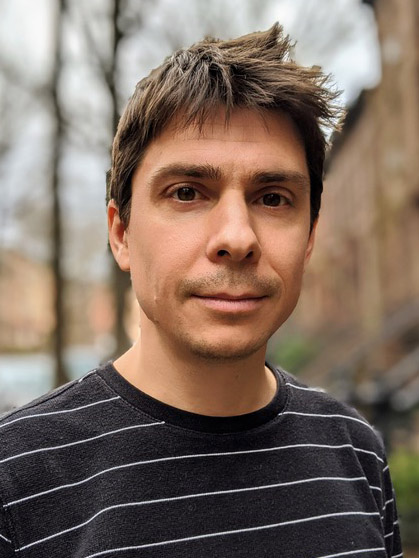
Research scientist Peter Dixon studies peace, conflict, and justice in the United States and abroad as part of the Conflict Resolution and Coexistence program (COEX), where he co-leads the Everyday Justice and Policy Innovation projects. He received Heller’s Early Career Investigator Award in 2022 for his work on how local experiences around peace and conflict shape policy. Here, he discusses his major research interests at Heller.
Tell me about your work on the peace process in Colombia.
I’m working with Professor Pamina Firchow from COEX and a team of researchers to understand how peace and conflict are experienced and understood locally in Colombia, with a focus on the 2016 peace agreement between the government and FARC (Fuerzas Armadas Revolucionarias de Colombia).
We are researching what peace means in everyday life versus how it is defined and implemented through state institutions. Peace agreements are an important part of peacebuilding, but they’re only one part. How peace is understood locally is often left out because countries like Colombia are highly centralized. I want to know how exclusionary or inclusive policy processes impact sustainable peace differently.
How does this work relate to your research in the United States?
I appreciate that the COEX program brings together students from the U.S. and abroad in ways that help make the world feel smaller. Peace and conflict studies can sometimes feel relevant only for “other” countries, but we’re seeing a real understanding that the issues we work on abroad are the same we are working on here. The United States is not an exception.
In Oakland, California, my work is motivated by a lot of the same questions about how to bridge community and elite voices through policy. I’m interested in how local experience and voice can make a difference in decisions around policing, criminal justice, and public safety, among other areas of interest.
For example, the national conversation around alternatives to policing and traditional public safety requires a parallel conversation around what we are measuring to identify priorities and determine success. Policymakers typically pay attention to crime statistics, but these only tell part of the story. How can we get policymakers to care about the upstream causes of violence when they are only measuring the downstream effects? One way is to bring communities together to define the indicators themselves, translating real-life experiences into the technocratic language of indicators that policymakers pay attention to. This is our first U.S.-based project at Everyday Peace Indicators, and we are working to develop more like it.
In Oakland, we work with community organizations because we want this research to be locally productive and yield useful data. Our partners have expressed interest in using the data to support their programming, advocacy, and grant writing. While cities invest in policing, we can provide this information and data on public safety that speak to the importance of promoting access to jobs, mental health services, community resources, and so much more.
How have you been involved in research on reparations?
I had worked on issues of reparation at the International Criminal Court and elsewhere internationally, but never in the United States, until recently. In the wake of the Black Lives Matter protests in 2020, I was contacted by Human Rights Watch and got involved in their efforts to advance legislation on reparations for slavery through H.R.40 [the Commission to Study and Develop Reparation Proposals for African Americans Act]. This is by no means a new movement, but the confluence of the pandemic, the protests, and living in the age of social media brought wide-scale recognition to two truths: that Black and brown Americans face regular acts of extreme violence, and that these acts are linked to broader systems and legacies that the country has not dealt with.
If passed, H.R.40 wouldn’t provide reparations; rather, it would establish a commission to study the effects of slavery and explore what reparations could look like in practice. This is an important difference. I remain skeptical whether it will pass, unfortunately, but the bill has gotten farther than ever before — and that’s a great sign. Reparations would be an important part of the U.S. confronting and dealing with its past, and the fight for reparations could lend valuable support to the broader struggle for civil rights.
